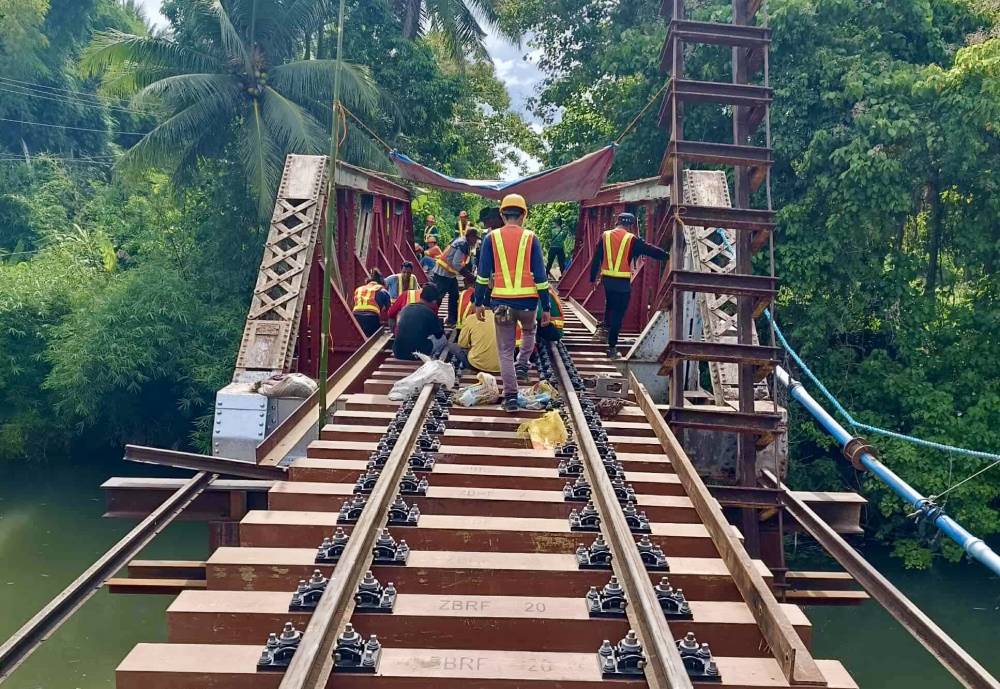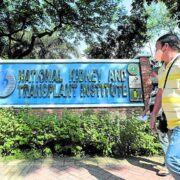‘Budget squeeze’ eyed to finish Laguna-Bicol train route

LIGAO CITY—Despite receiving only a fraction of its proposed funding, the Philippine National Railways (PNR) is pushing ahead with the rehabilitation of its 422-kilometer South Long Haul line from Laguna province to the Bicol region, a major infrastructure project seen to cut travel time and boost regional economies.
PNR general manager Deovanni Miranda said that in 2023, the agency proposed a P17-billion budget for major rehabilitation works, including the restoration of tracks, bridges, stations, depots, support facilities and the procurement of additional trains. But for 2025, only P2.5 billion had been approved.
“If that [budget] had been granted way back in 2024 or even for 2025, the project is fully covered by the end of President Marcos’ term. We will have a totally rehabilitated line,” Miranda told the Inquirer in an interview on Monday.
He said the PNR had been conducting assessments to “squeeze the budget” and ensure that the most critical segments—particularly from Laguna to Bicol—could still be completed and made operational despite limited resources.
Operational segments
As of early 2024, the Calamba (Laguna) to Lucena (Quezon), Naga (Camarines Sur) to Legazpi (Albay), and Naga to Sipocot (both in Camarines Sur) segments are operational. Repair work continues on the Lupi, Camarines Sur, to Tagkawayan, Quezon, segment, adding another 99 km of track.
Operations resumed on the Naga-Legazpi route early this year with two daily trips. The Naga-Sipocot segment is also running, while the expansion to Lupi and Tagkawayan route is expected to be completed before year-end.
Once the line is fully rehabilitated, travel time from Laguna to Bicol could be reduced from eight hours by road to just five hours by train, Miranda said.
“This is a big deal for travel. It will save on expenses and open up major business opportunities,” he said.

Damaged by storms
The Bicol Express line, built in the 1930s, has not undergone full maintenance in decades. It was briefly operational from 2010 to 2013, but fell into disrepair due to weather-related damage—most recently from Severe Tropical Storm “Kristine” (international name: Trami) in 2024, which damaged key infrastructure, such as the Binahan Bridge in Ragay, Camarines Sur.
Miranda confirmed that the bridge had been repaired, as earlier mentioned by President Marcos in his recent State of the Nation Address.
“With its restoration, transporting construction materials and repairing the tracks became easier,” he said.
The PNR is also closing 38 illegal crossings to reduce accidents. Miranda said recorded fatalities dropped from six in 2024 to three so far in 2025.
To improve passenger experience, the PNR is working with the Department of Science and Technology to enhance window durability without compromising safety to allow travelers enjoy countryside views, including Mayon Volcano in Albay.
“We are continuously coordinating with local governments on the relocation of informal settler households along the right-of-way, which continues to be a challenge in completing the line,” Miranda said.
New partnerships
The Department of Transportation is reportedly in talks with international partners—including France, Japan and India—to support railway projects, particularly the Makabagong Bicol Express.
But Miranda said existing agreements must first be resolved before entering into new partnerships.
The President has stressed the need to push through with existing projects, identifying the Bicol railway as a priority under his “Build Better More” agenda.
“Expectations are high, and we remain optimistic that the full rehabilitation of the Laguna-Bicol line will be completed before the end of [Mr. Marcos’] term to provide people with more convenience and better service,” Miranda said.

















